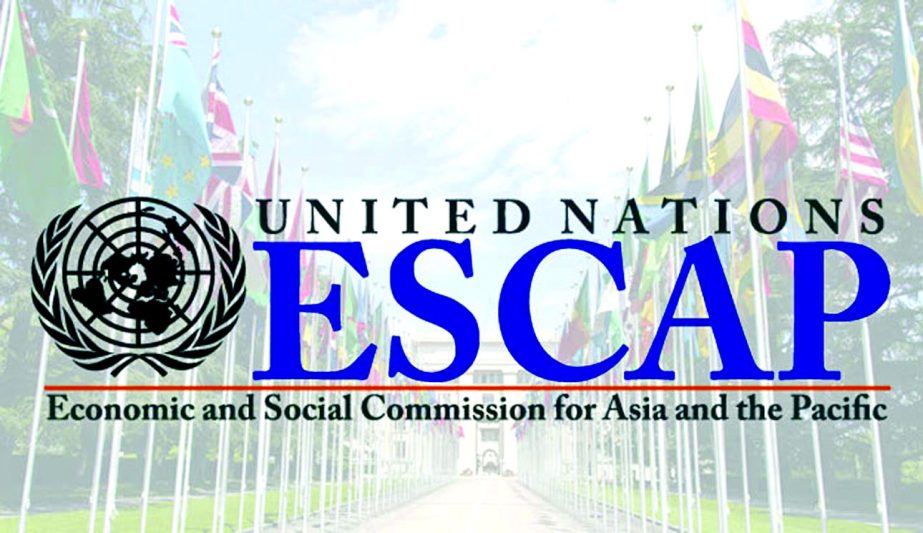
Economic Reporter :
The United Nations Economic and Social Commission for Asia and the Pacific (UNESCAP) has adopted Bangladesh resolution on conservation and sustainable use of the oceans, seas and marine resources for sustainable development in Asia and the Pacific.
The heads of government and other high-level officials from around Asia and the Pacific region unanimously adopted the resolution on oceans economy sponsored by Bangladesh at the end of the five-day 72nd session of the UN body in Bangkok on May 19, a press release said here on Monday.
“High-level representatives and delegates of 53 countries participated in the debates at the 72nd session on regional cooperation and integration, and reviewed key challenges to achieving inclusive and sustainable economic and social development in the Asia Pacific region,” the release said.
The resolution proposed by Bangladesh titled “Regional cooperation in Asia and the Pacific to promote the conservation and sustainable use of the oceans, seas and marine resources for sustainable development” was adopted by consensus at the commission after several rounds of intense negotiations.
Australia, India and Sri Lanka co-sponsored the Bangladesh resolution and made statements of support to the Bangladesh resolution.
“In keeping with Prime Minister Sheikh Hasina’s leadership role in promoting the Blue Economy concept, we took the initiative to table for the first time in UNESCAP, a resolution linked to Sustainable Development Goal 14 and our national aspirations to conserve and use marine resources at the Bay of Bengal sustainably,” said Saida Muna Tasneem, Bangladesh Ambassador to Thailand and Permanent Representative to the UNESCAP.
The ambassador and PR said that as part of acknowledging Prime Minister Sheikh Hasina’s initiatives to promote the Blue Economy concept, the Bangladesh resolution contains text recalling the International Workshop on Blue Economy held in Dhaka on September 1-2 in 2014.
Goal 14 of the Agenda 2030 stresses the importance of the conservation and sustainable use of oceans, seas and marine resources for sustainable development and is expected to help member states, especially Small Island Developing States (SIDS), Least Developing Countries (LDCs), low lying coastal states and also Landlocked Developing Countries (LLDCs) in the region to address their sustainable development challenges.
The Tajik Prime Minister while chairing the 72nd session of the ESCAP announced the unanimous adoption of the Bangladesh resolution with broad support of all 53 ESCAP member states.
During the 72nd session, the Bangladesh Embassy in Bangkok also took an initiative to organise a high-level side event titled “Accelerating Financial Inclusion in Least Developed
Countries in Asia and the Pacific: The Role of South-South and Triangular Cooperation” in partnership with UNCDF and UNESCAP.
The Minister of Finance and Economic Development of Kiribati, the ESCAP Executive Secretary, Deputy Governor of Bangladesh Bank, the Deputy Governor of the National Bank of Cambodia, experts from Australia and the private sector participated as panelists in the event.
Bangladesh was highly praised at the event for its pioneering initiatives and successes in ensuring financial inclusion of the disadvantages segments of the society.
The United Nations Economic and Social Commission for Asia and the Pacific (UNESCAP) has adopted Bangladesh resolution on conservation and sustainable use of the oceans, seas and marine resources for sustainable development in Asia and the Pacific.
The heads of government and other high-level officials from around Asia and the Pacific region unanimously adopted the resolution on oceans economy sponsored by Bangladesh at the end of the five-day 72nd session of the UN body in Bangkok on May 19, a press release said here on Monday.
“High-level representatives and delegates of 53 countries participated in the debates at the 72nd session on regional cooperation and integration, and reviewed key challenges to achieving inclusive and sustainable economic and social development in the Asia Pacific region,” the release said.
The resolution proposed by Bangladesh titled “Regional cooperation in Asia and the Pacific to promote the conservation and sustainable use of the oceans, seas and marine resources for sustainable development” was adopted by consensus at the commission after several rounds of intense negotiations.
Australia, India and Sri Lanka co-sponsored the Bangladesh resolution and made statements of support to the Bangladesh resolution.
“In keeping with Prime Minister Sheikh Hasina’s leadership role in promoting the Blue Economy concept, we took the initiative to table for the first time in UNESCAP, a resolution linked to Sustainable Development Goal 14 and our national aspirations to conserve and use marine resources at the Bay of Bengal sustainably,” said Saida Muna Tasneem, Bangladesh Ambassador to Thailand and Permanent Representative to the UNESCAP.
The ambassador and PR said that as part of acknowledging Prime Minister Sheikh Hasina’s initiatives to promote the Blue Economy concept, the Bangladesh resolution contains text recalling the International Workshop on Blue Economy held in Dhaka on September 1-2 in 2014.
Goal 14 of the Agenda 2030 stresses the importance of the conservation and sustainable use of oceans, seas and marine resources for sustainable development and is expected to help member states, especially Small Island Developing States (SIDS), Least Developing Countries (LDCs), low lying coastal states and also Landlocked Developing Countries (LLDCs) in the region to address their sustainable development challenges.
The Tajik Prime Minister while chairing the 72nd session of the ESCAP announced the unanimous adoption of the Bangladesh resolution with broad support of all 53 ESCAP member states.
During the 72nd session, the Bangladesh Embassy in Bangkok also took an initiative to organise a high-level side event titled “Accelerating Financial Inclusion in Least Developed
Countries in Asia and the Pacific: The Role of South-South and Triangular Cooperation” in partnership with UNCDF and UNESCAP.
The Minister of Finance and Economic Development of Kiribati, the ESCAP Executive Secretary, Deputy Governor of Bangladesh Bank, the Deputy Governor of the National Bank of Cambodia, experts from Australia and the private sector participated as panelists in the event.
Bangladesh was highly praised at the event for its pioneering initiatives and successes in ensuring financial inclusion of the disadvantages segments of the society.

